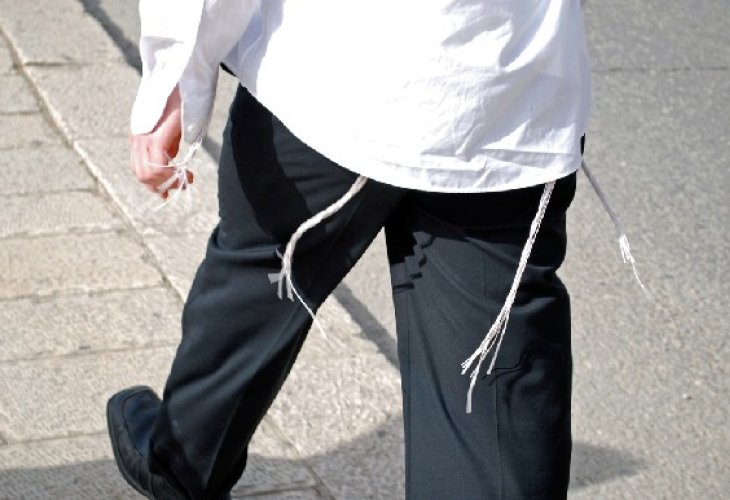Jewish Law
The Mitzvah of Tzitzit: Meaning, Laws, and Spiritual Power in Daily Jewish Life
The purpose and symbolism of tzitzit — from halachic laws and customs to the deep spiritual protection, Torah connection, and blessings this timeless mitzvah brings
 Tzitzit | Mitzvah of Tzitzit
Tzitzit | Mitzvah of TzitzitThe mitzvah of tzitzit (fringes) is one of the time-bound commandments, which means it applies only at specific times, and is therefore obligatory for men only.
Any garment with four or more corners (square or rectangular) must have tzitzit strings tied to its corners.
There is no obligation to wear a four-cornered garment in order to become obligated in tzitzit. However, our Sages taught that one who neglects wearing tzitzit may be held accountable, because if he truly valued this mitzvah, he would make the effort to wear it regularly. Hence, the custom of wearing a special tzitzit garment (tallit katan) developed, so that one can actively fulfill this beloved mitzvah every day.
According to Sephardic halacha (Shulchan Aruch), only garments made of wool or linen are Biblically obligated in tzitzit. The Rema (Ashkenazic authority) rules that any four-cornered garment, regardless of fabric, requires tzitzit from the Torah. Therefore, many choose to wear wool tzitzit, which fulfill the mitzvah according to all opinions.
Wearing tzitzit serves as a spiritual reminder to observe all of God’s commandments, as it says: “And you shall see them, and remember all My commandments” (Bamidbar 15:39). The five knots in each set of strings correspond to the Five Books of the Torah, reinforcing the idea of constant remembrance of divine law.
- The blue thread (techelet) symbolizes the sea, the sky, and the Throne of Glory — reminding the wearer of the Divine Presence and of his purpose in life. Rabbi Zamir Cohen explains that tzitzit connect the physical act of dressing to spiritual awareness, helping a person elevate daily life toward holiness.
- Kosher tzitzit must be spun and tied by a knowledgeable Jewish person, with intention (lishmah) — specifically for the purpose of fulfilling the mitzvah. Both the twisting of the threads and the tying of the knots must be done with this intent.
If one of the eight threads (four doubled over) tears below the knots, the tzitzit remains kosher. If more than one thread tears, a rabbi should be consulted.
However, if even one thread tears above the knots, the tzitzit becomes invalid and must not be worn until fixed.A borrowed tallit (prayer shawl) is exempt from tzitzit. Therefore, when borrowing someone else’s tallit, one should request that it be given as a temporary gift (“a gift on condition of return”) so he may recite the blessing.
Customs differ among communities regarding how to wear tzitzit — whether over the clothing (more visible) or underneath (more private). Each community follows its established tradition.
The Rambam (Maimonides) wrote: “A person should always be careful with the mitzvah of tzitzit, for Scripture equates it with all the commandments together — as it says, ‘And you shall see it and remember all the commandments of the Lord.’” The Shulchan Aruch adds: “One who is careful with the mitzvah of tzitzit will merit to behold the Divine Presence.”
The Spiritual Power of Tzitzit
The mitzvah of tzitzit is deeply protective. It guards the wearer, brings blessing to his children, and is even considered a segulah (spiritual remedy) for fertility. Even someone who does not yet wear a kippah (head covering) can still wear tzitzit discreetly under a shirt, fulfilling this mitzvah without social pressure.
As Rabbi Zamir Cohen explains, tzitzit are not merely strings — they are reminders of purpose, purity, and divine connection, helping a person walk through life with holiness and clarity.

